28 secrets to the cleanest kitchen ever
Make your kitchen shine
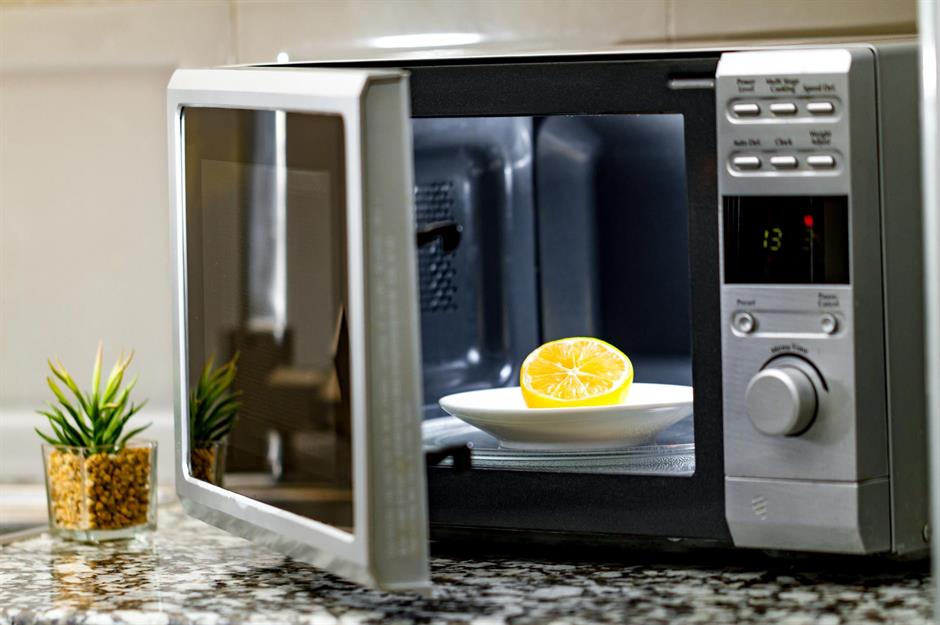
Freshen up chopping boards with lemon
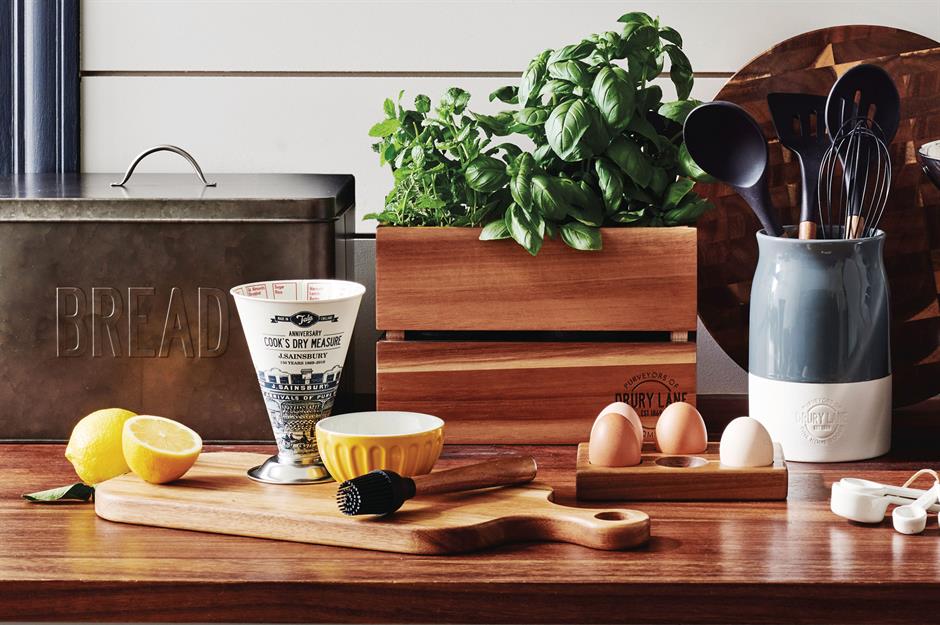
Clean burnt saucepans with salt
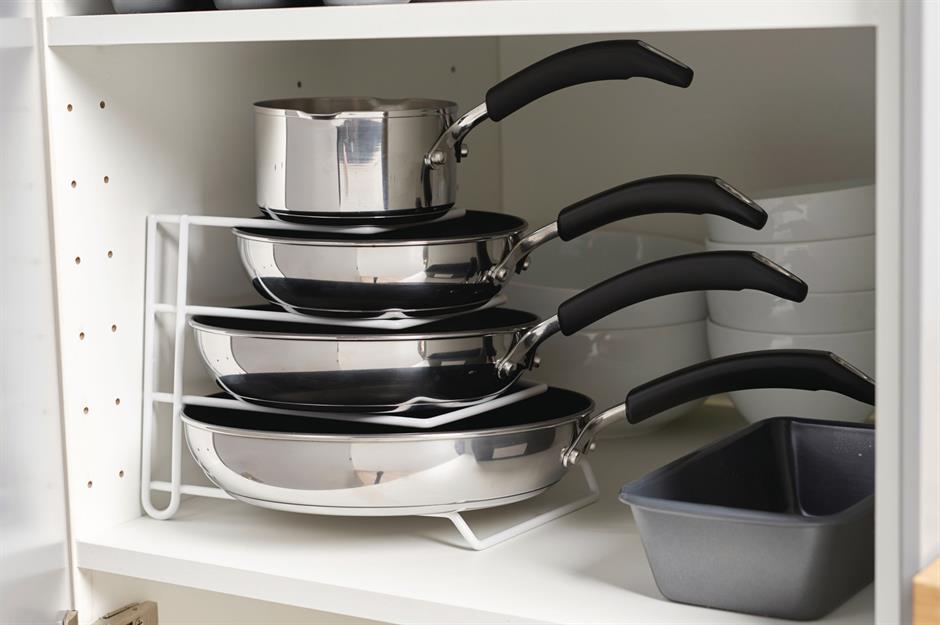
We've all done it at one time or another – you've been cooking something in a saucepan and it has burned to the bottom. Salt is a natural abrasive cleanser and it works wonders for removing any stubborn residue. Sprinkle the base of your saucepan with salt and just a few drops of water. Leave it to soak into the burned area, then use a kitchen scraper or scourer to lift the residue away. Remember, though, that abrasive cleaners can damage non-stick pans – wherever possible use a nylon sponge or cloth to clean these items.
Use a scraper on ceramic hobs
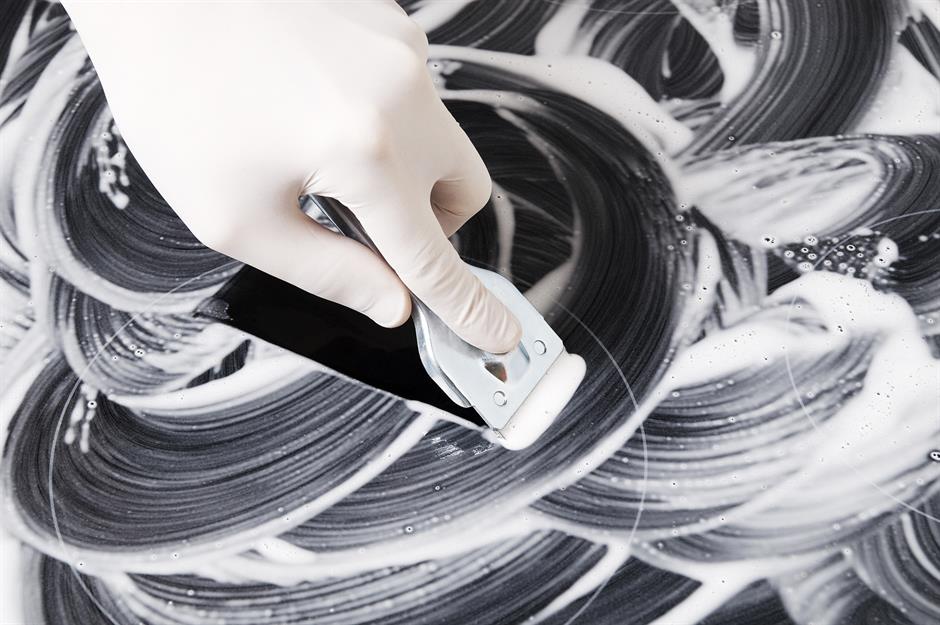
Clean knives with potato
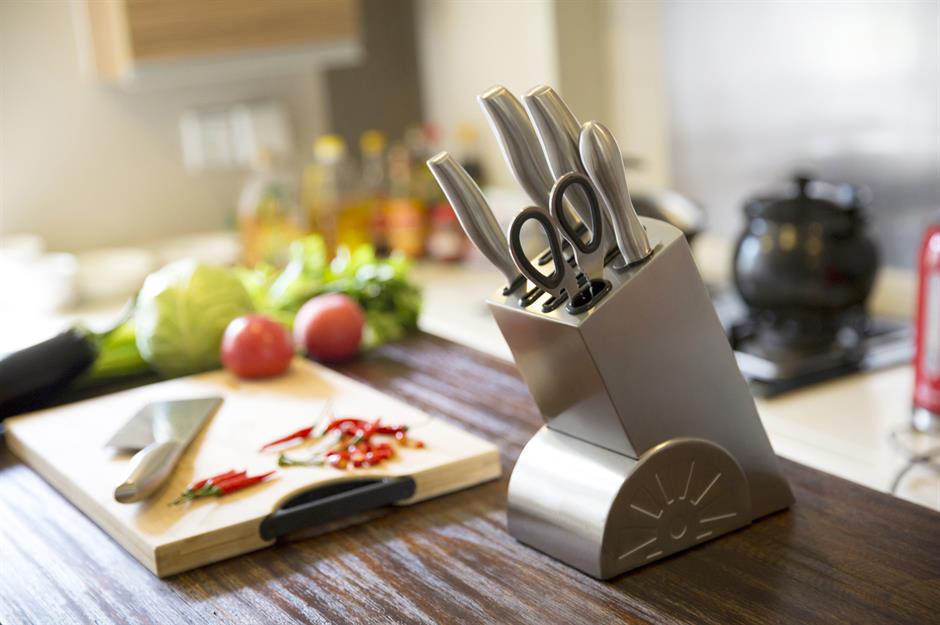
Descale the kettle with vinegar
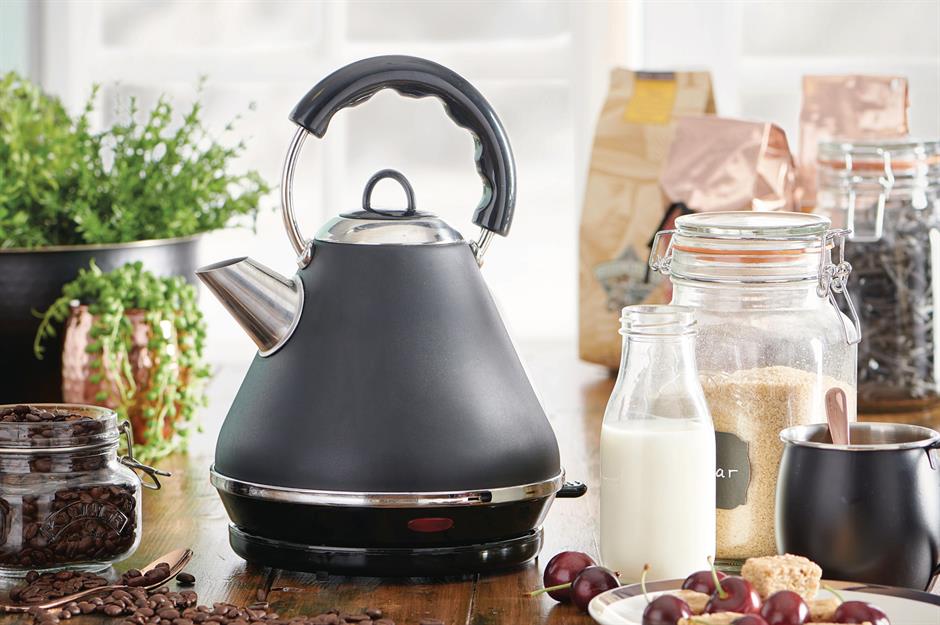
There are a few natural ingredients that are staple cleaning solutions for the whole home, and vinegar is one of them. If your kettle is contaminated by limescale, vinegar is an effective natural substitute for chemical descalers. Distilled white vinegar is generally preferred, as it's colourless and has less of an odour than its alternatives. Fill your kettle with one-part water and one-part vinegar, boil and leave to stand for an hour. Empty and re-boil with just water twice more and it should be purified and ready for use.
Soften microwave mess with lemon
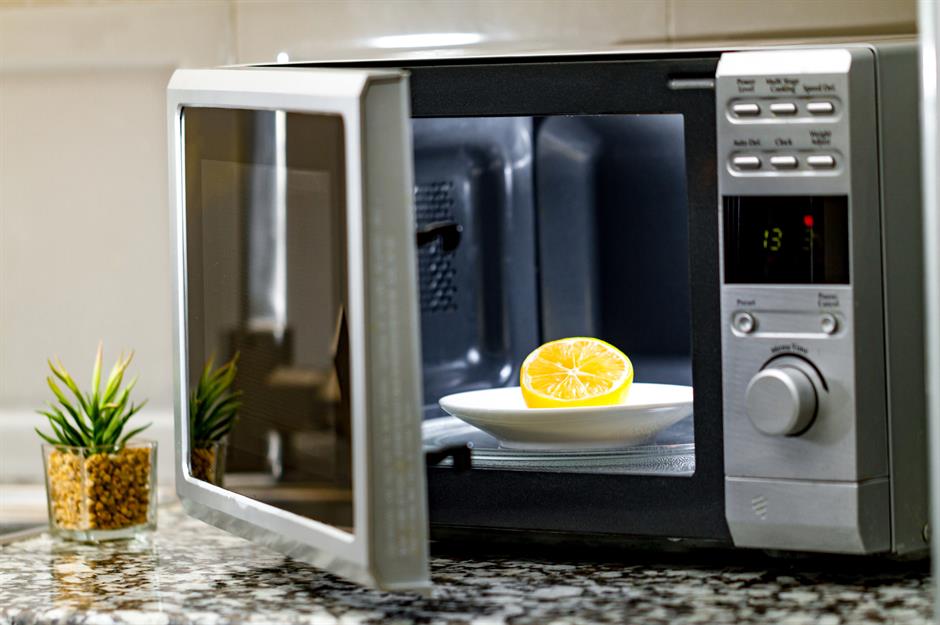
Season cast iron
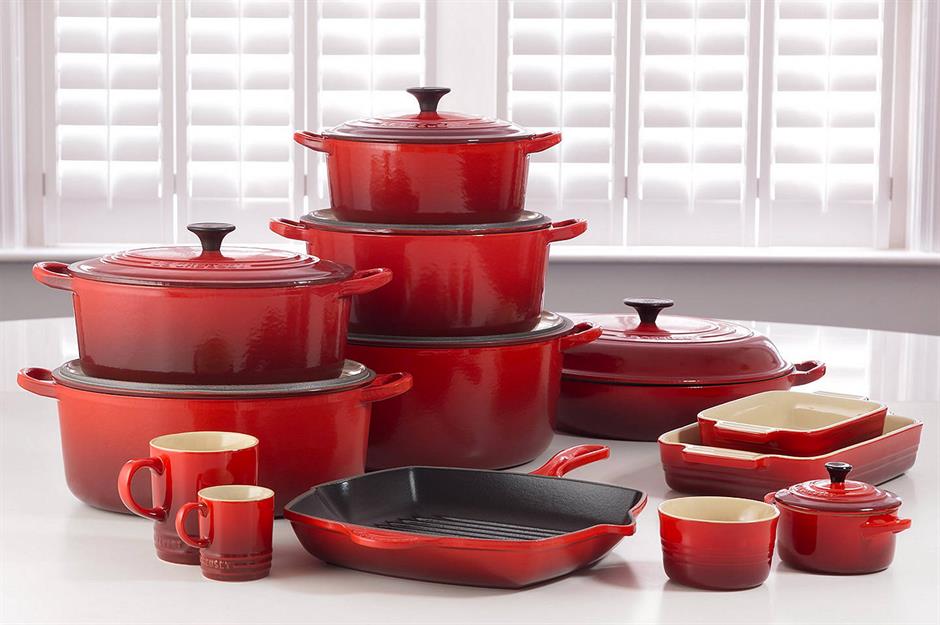
"Seasoning" these fabulous cooking pots is a vital step in enhancing their cooking ability, and the process is simple. First, wash your skillet or pan in warm soapy water, then cover the base with salt and use the moist edge of a cut potato to rub the salt into the surface. Rinse off and pat dry. Next, pour a little good-quality vegetable oil into the base of the pan, wipe off any excess with a paper towel, then seal on a low heat for around 30 mins. Leave to cool and remove residue with a dry paper towel.
Deodorise drains with soda crystals
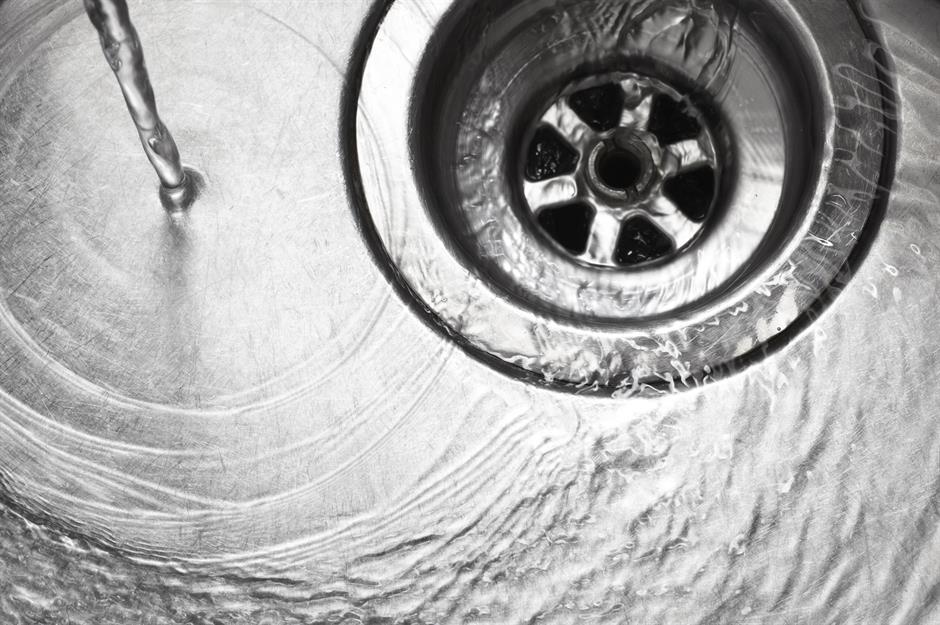
This hack was recently revealed by Instagram cleaning sensation Mrs Hinch. She advises pouring soda crystals down the plug hole, followed by white vinegar, and finally Zoflora disinfectant. Leave for 30 minutes, then wash it all away with boiling water. It will loosen blockages and wash away nasty odours too.
Protect drains with disposable screens
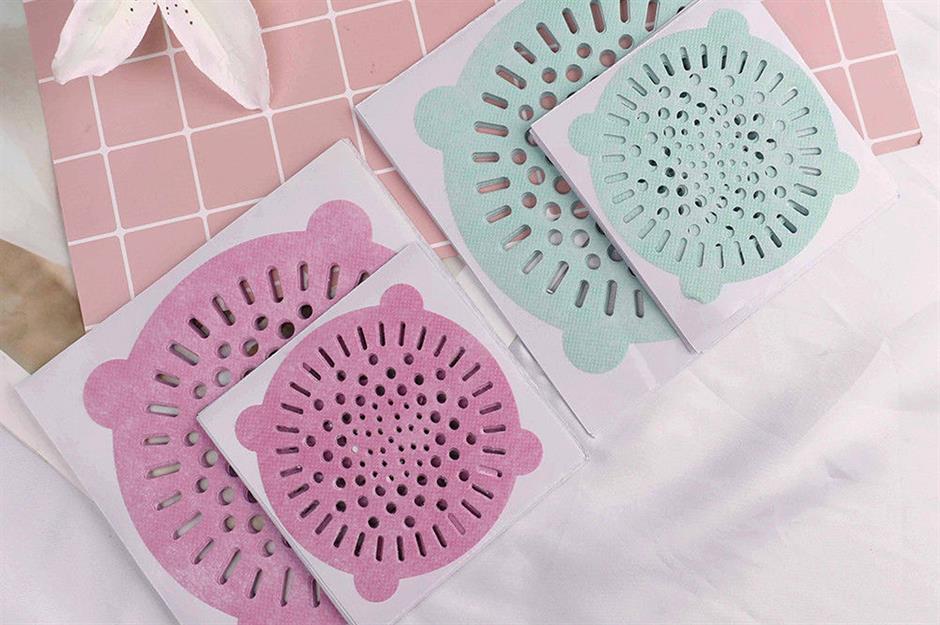
Refresh containers with bicarbonate of soda
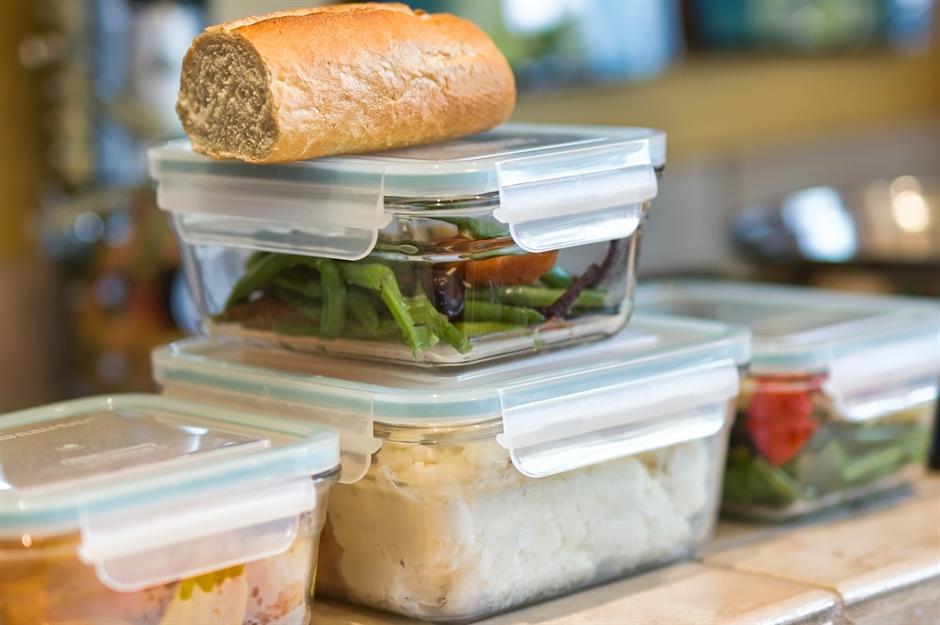
Recycle bathroom towels as dishcloths
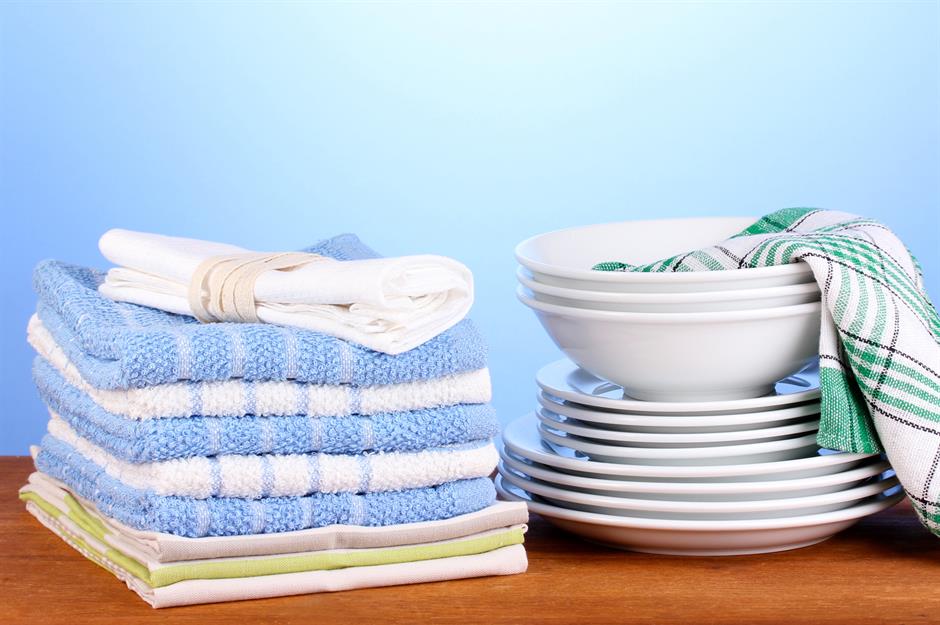
Clean with toothpaste
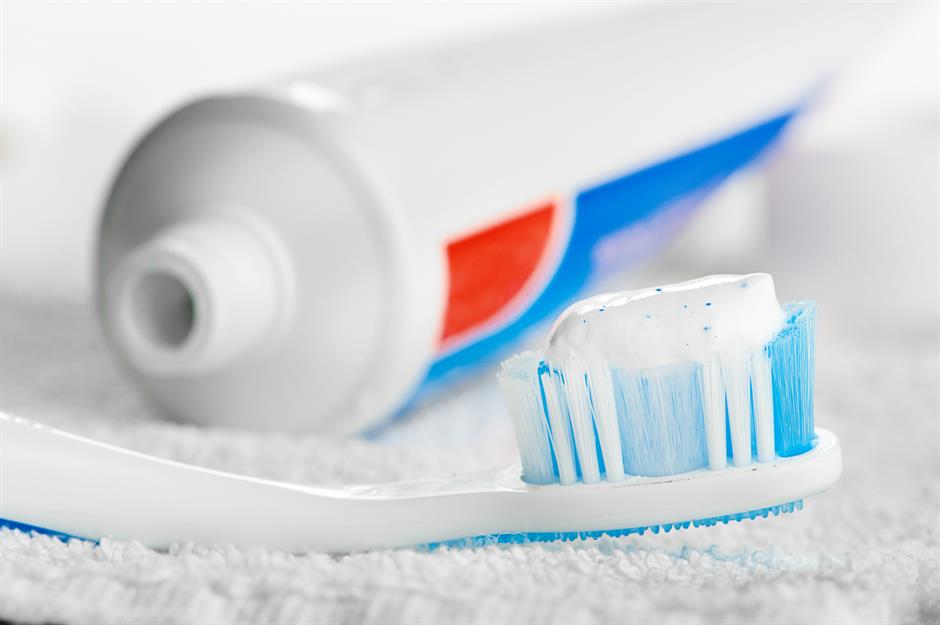
Make aluminium balls
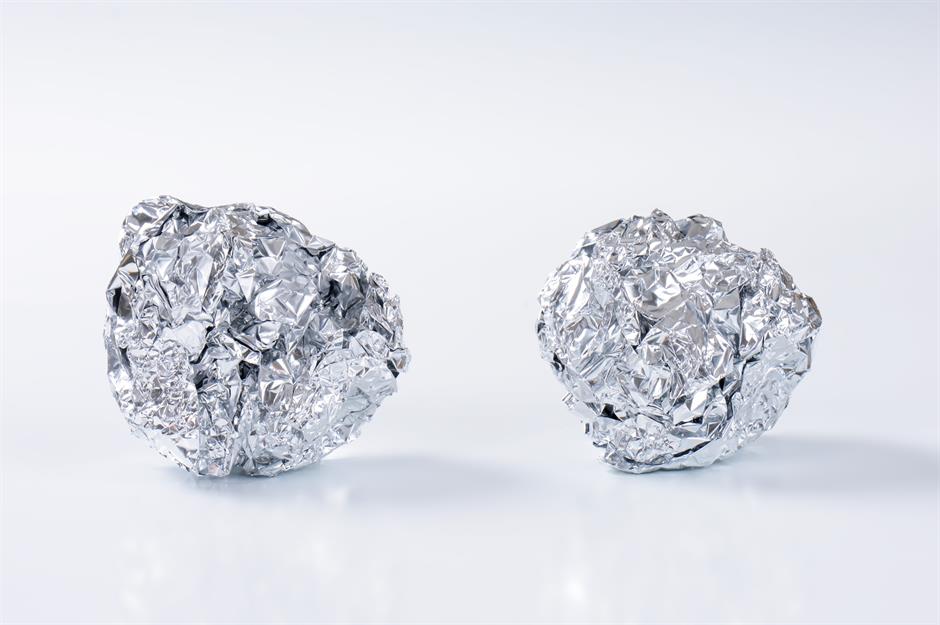
Remove watermarks from glassware
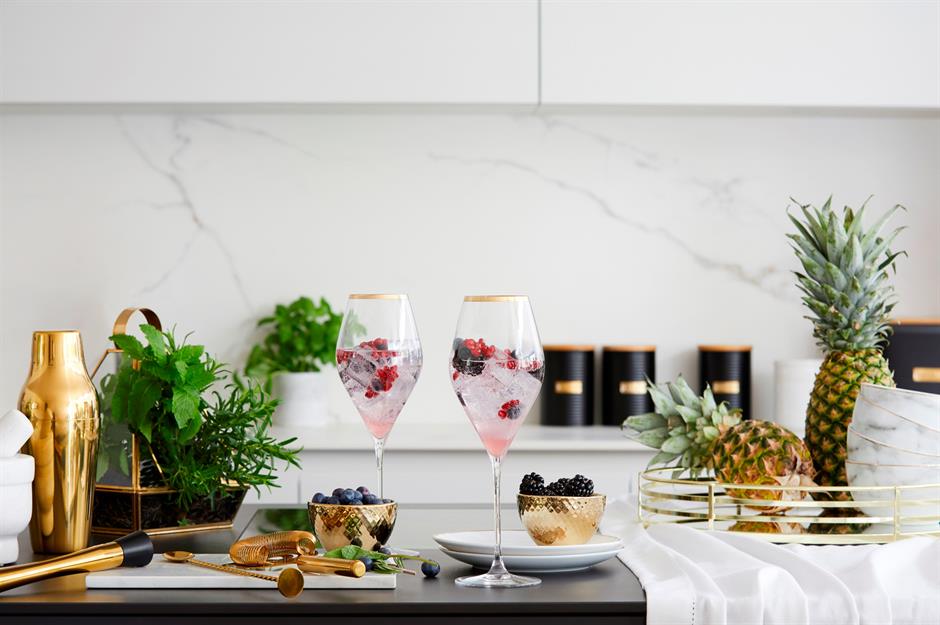
Don't let hard-water film show you up when serving cocktails – make sure your glassware shines with our favourite versatile cleaning agent: vinegar. Julie from frugallyblonde.com advises filling up your sink with water, then popping a cup of vinegar into the mix. Add your glasses and leave them to soak for around 30 minutes. Once they've soaked, rinse them off, then clean them in the usual way – in the dishwasher, or in the sink with warm, soapy water. The result should be sparkling and mark-free glasses.
Clean with ketchup
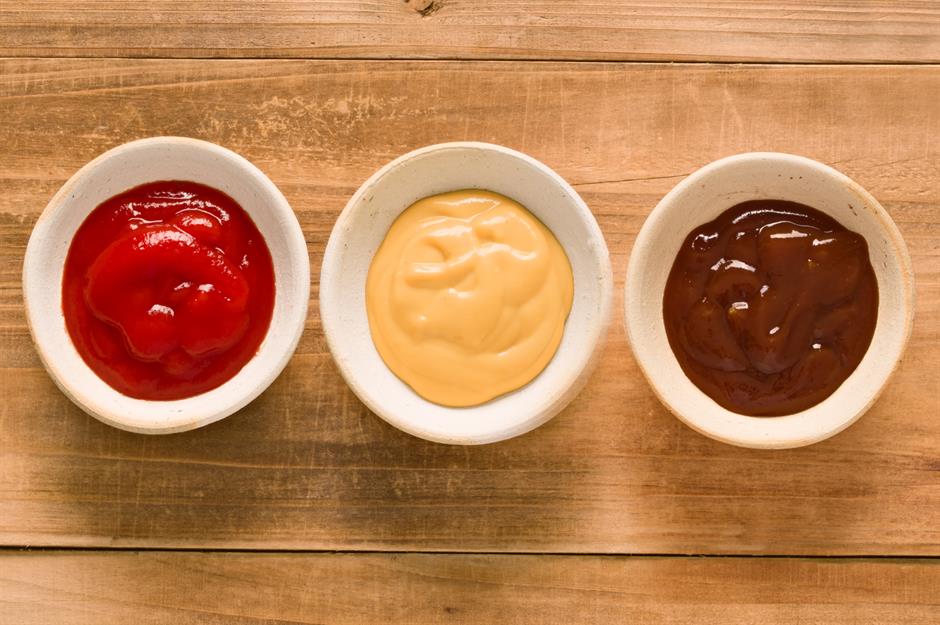
Don't throw away silica gel bags
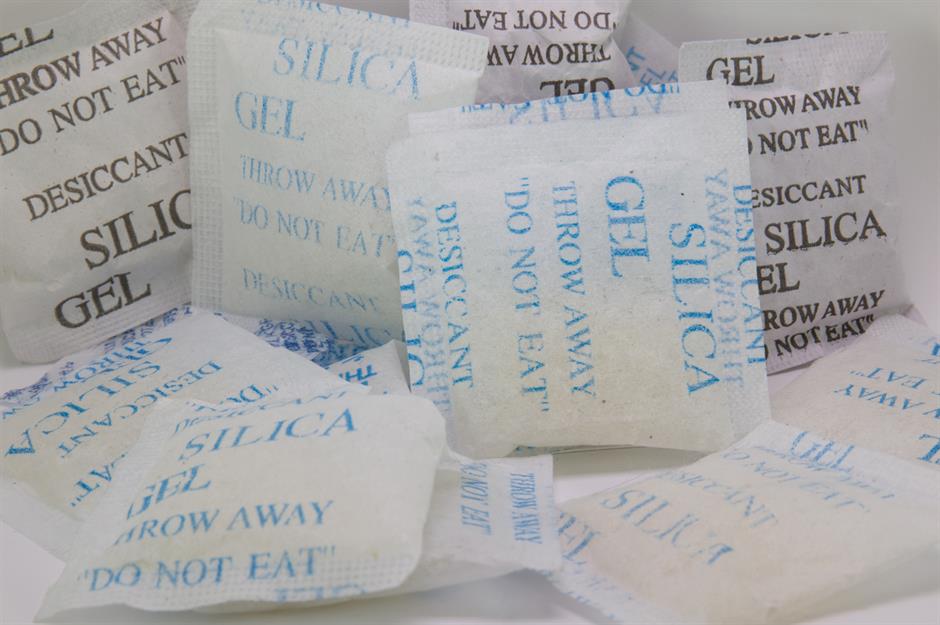
Those little paper packets in a new box of shoes or inside a new handbag are put there for good reason: to keep lovely new purchases dry and fresh. And you can use them to eliminate moisture from your kitchen. Keep them in your dishwasher detergent box to stop tablets sticking together; place them in your silverware drawer to prevent tarnishing; or pop some in your spice cupboards to keep powders dry. We could go on. The contents, a form of the naturally occurring mineral silicon dioxide, are not harmful if ingested in small doses – however, the packets can be a choking hazard for children, so be vigilant.
Remove grease from walls with chalk
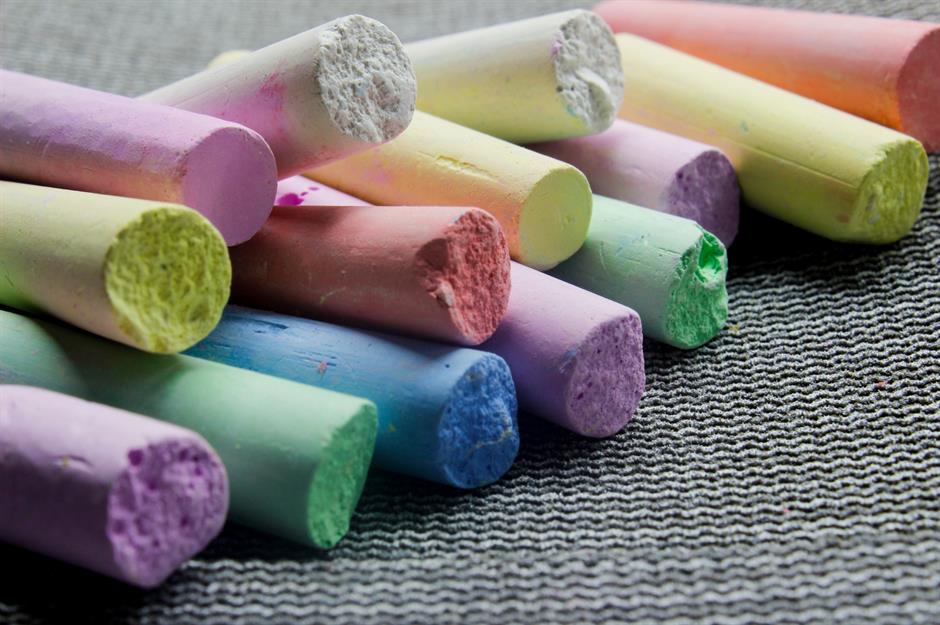
Abrasive cleaners can ruin your paintwork, so instead use chalk to remove mucky, greasy fingerprints from walls. Melissa Maker from cleanmyspace.com has tried and tested this kitchen-cleaning hack and she says it comes up trumps. She advises that you take a piece of chalk at an angle (the sharper edge will leave scratches in the paint) and rub it over any fingerprints. Leave it for five minutes until the chalk clings to the oily marks. Finally wipe up the mess with a damp cloth and your paintwork should be fingerprint free.
Take marks off doors with fabric conditioner
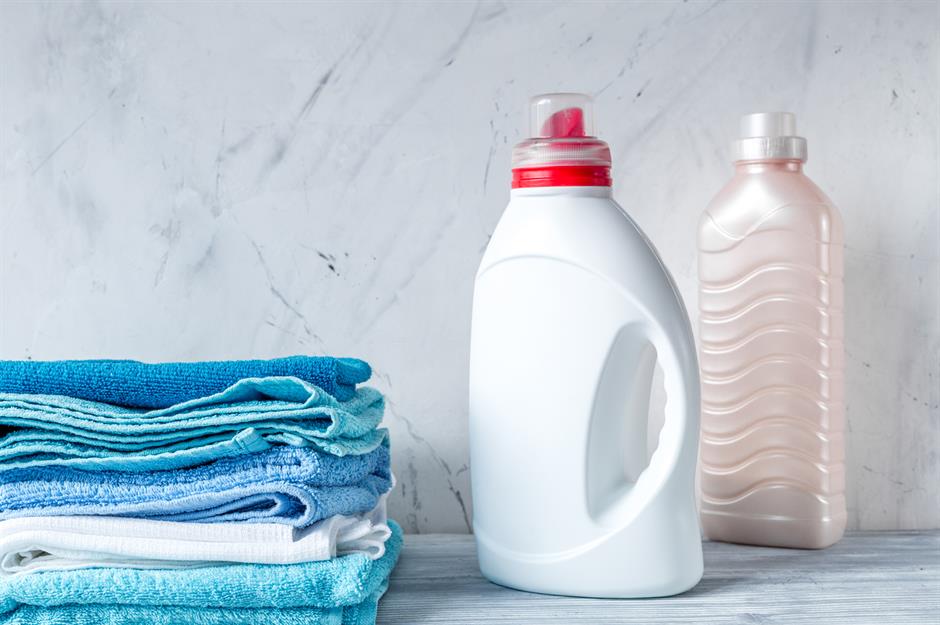
Clean your blender instantly
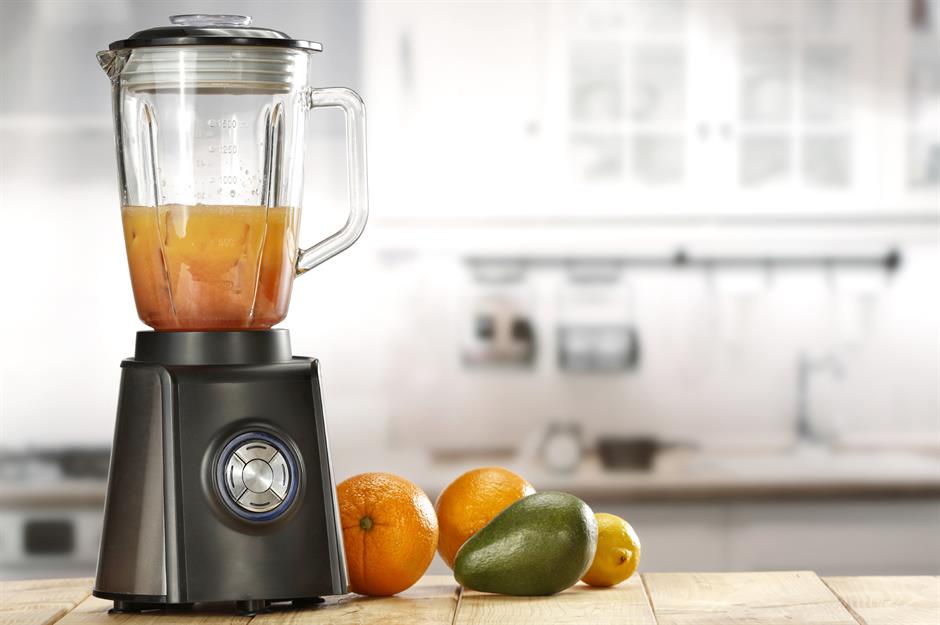
Make the most of your dishwasher
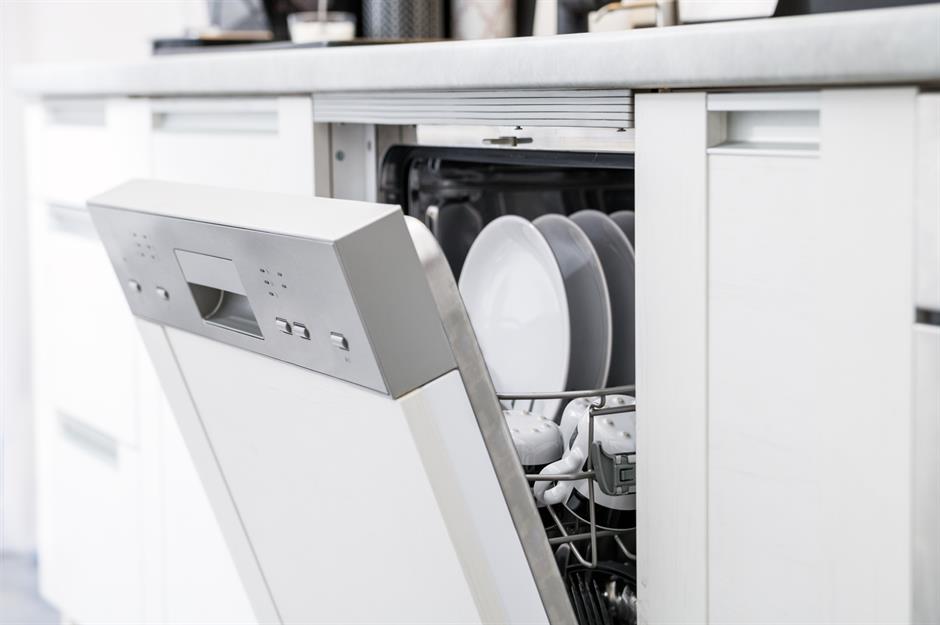
Clean a garlic crusher properly
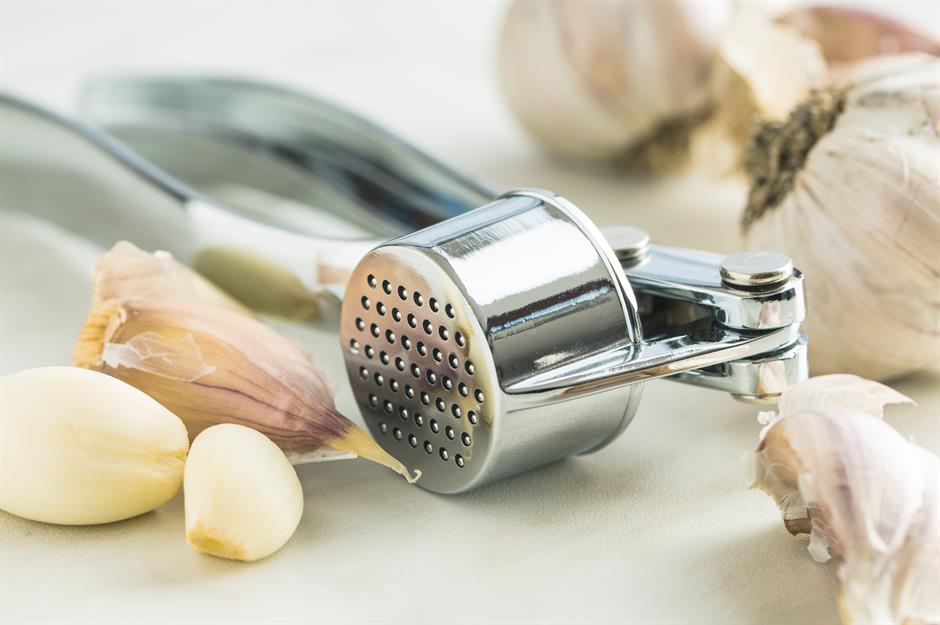
Invest in a self-cleaning oven
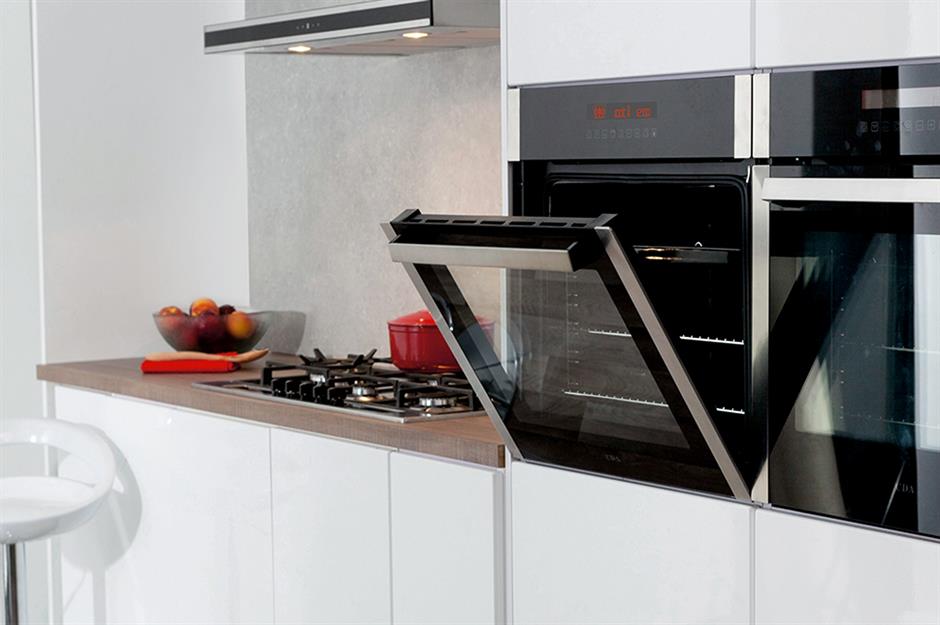
Deodorise your dishwasher
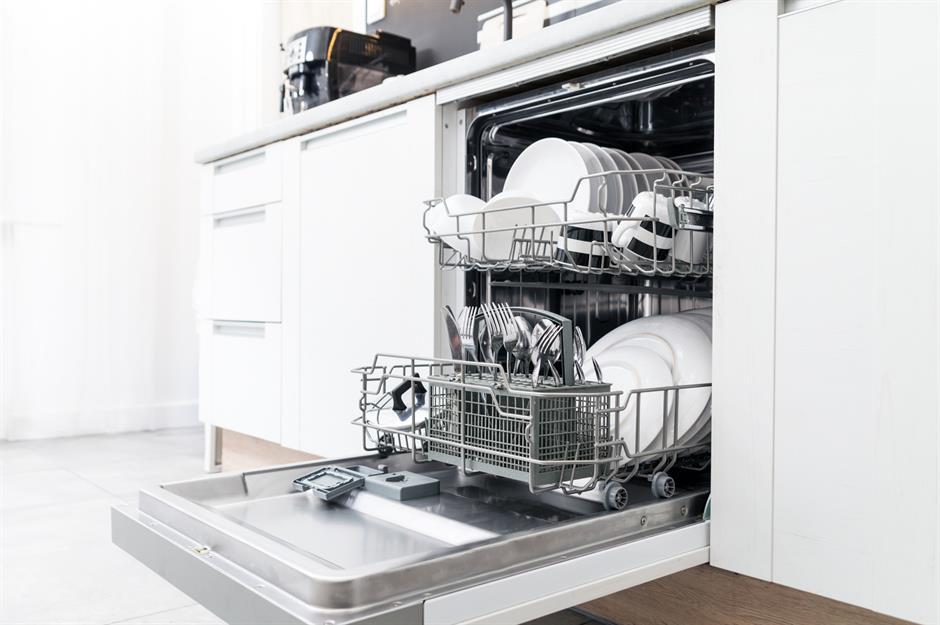
Has your dishwasher developed a nasty odour? Emma Marsden and Aggie Mackenzie, authors of The Miracle of Vinegar, advise to first clean the gap between the bottom of the door and the base of the machine using kitchen paper. Then, when this bit is done, pop a cup of clear vinegar into the machine and run an empty cycle. It'll neutralise odours and keep pipes grease free.
Clean the grater with a pastry brush
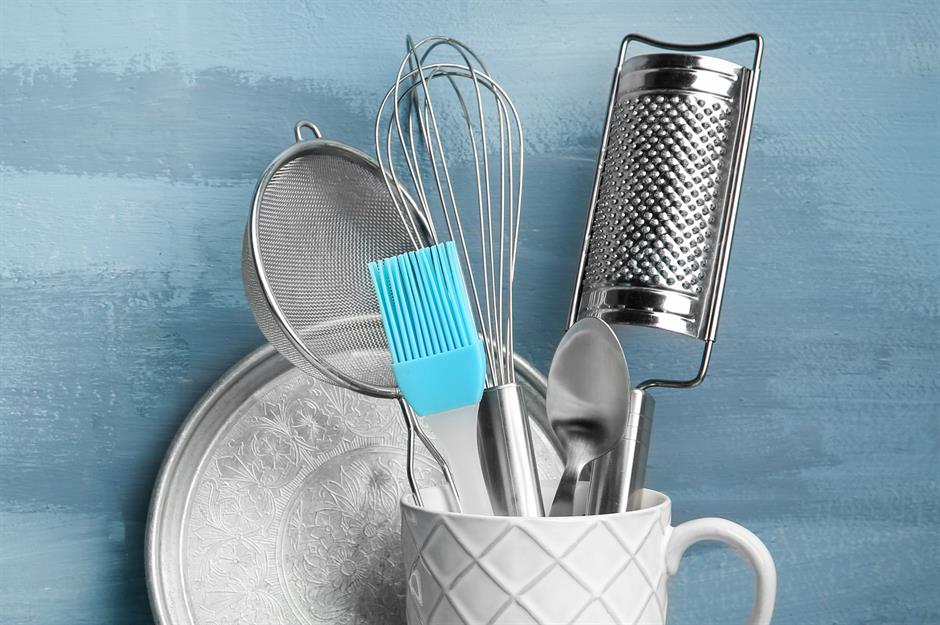
Cheese lovers rejoice – there is a kitchen-cleaning hack that will have your graters gleaming again. The humble pastry brush is about to become your best friend. Cleaning service Merry Maids suggest running a pastry brush along the grater in the direction of the blades (the opposite way to when you're grating). This will remove any leftover bits of cheese. Afterwards clean the grater in warm, soapy water or in the dishwasher as you normally would.
Pick up broken glass with bread
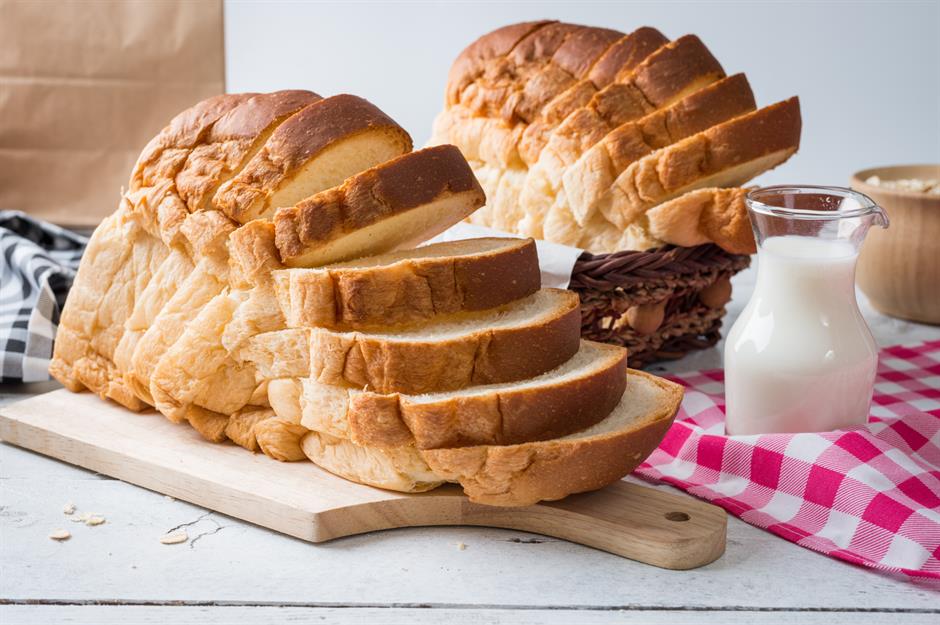
Clean roasting tins with dishwasher tabs
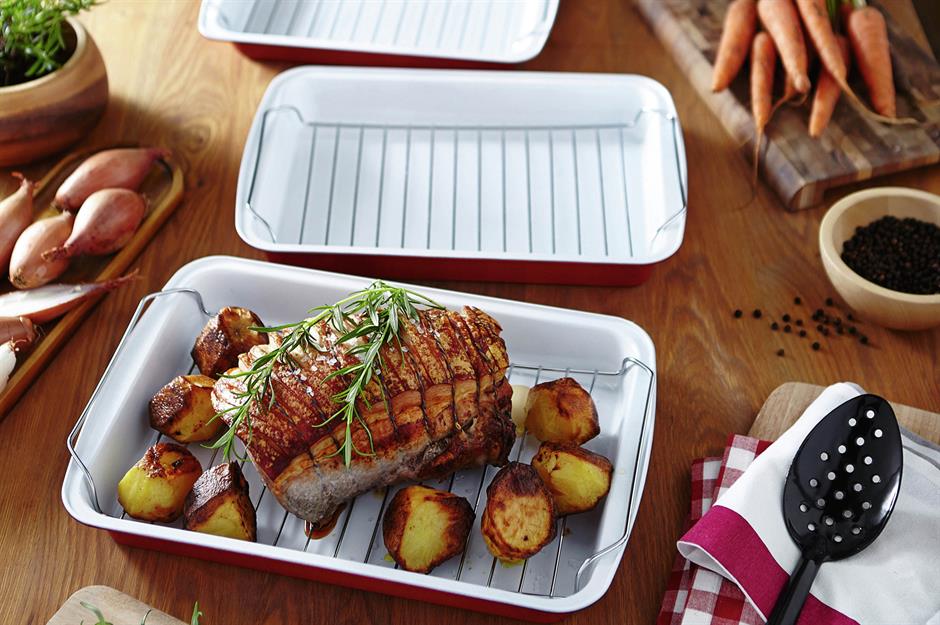
Roasting tins and baking trays are hardworking and they very often get caked in greasy burnt-on stains. Keep them looking like new for longer with dissolving dishwasher tablets. Cleverly.me says to fill your dishes up with hot water, then drop a dishwater tablet straight into them. You'll get the best results if you leave them overnight.
Read more: 29 mistakes you've been making when cleaning your kitchenware
Make stainless steel shine

Stainless steel gives kitchens a stylish chef-grade look, but keeping it from going dull is a challenge right? Wrong. Mineral oil or baby oil will give your metal surfaces that professional polish in no time. Meredith from unOriginal Mom shared the tip on Uncommon Designs, advising to put baby oil straight onto a cloth then wipe in the direction of the stainless steel's grain. Then, use the cloth's dry side to "softly buff" the oil off.
Read more: 30 tried and tested tips to organise your freezer
Make your own washing up liquid
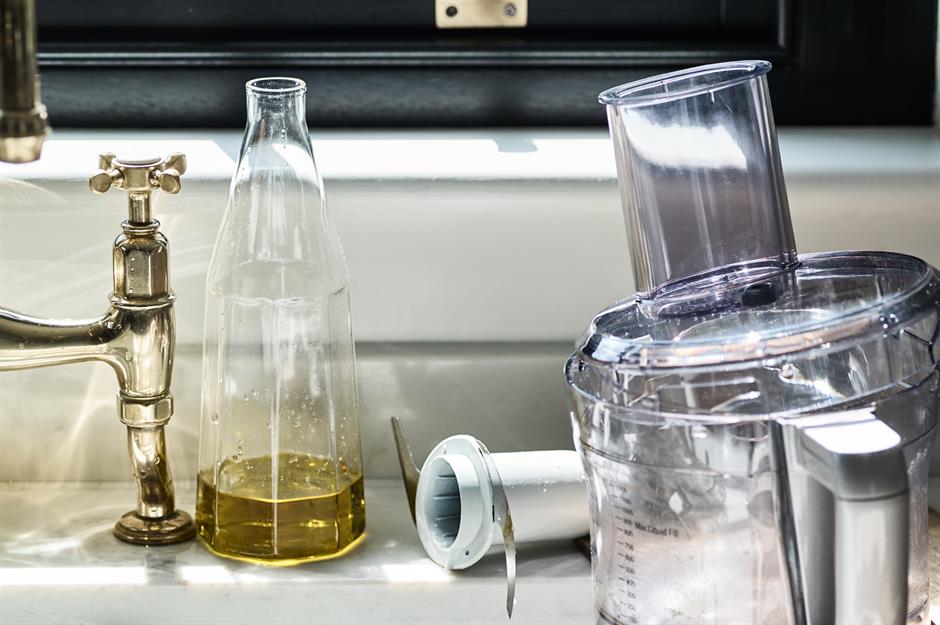
Try this eco-friendly, homemade version from ironing brand Polti. Boil four cut, unwaxed lemons in 350ml of water and simmer for 20 mins. Transfer to a blender and whizz up with more water if necessary. Sieve to remove the pulp, then pour the mixture back into the saucepan. Add 270g of coarse salt and 120ml of white vinegar and mix. Bring to the boil again, then simmer for 10–15 minutes, stirring frequently. Allow to cool, still stirring now and then to absorb any salt that may surface. Store in the refrigerator in a glass container.
Comments
Do you want to comment on this article? You need to be signed in for this feature